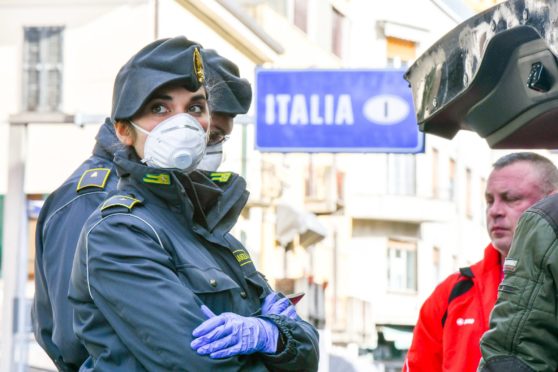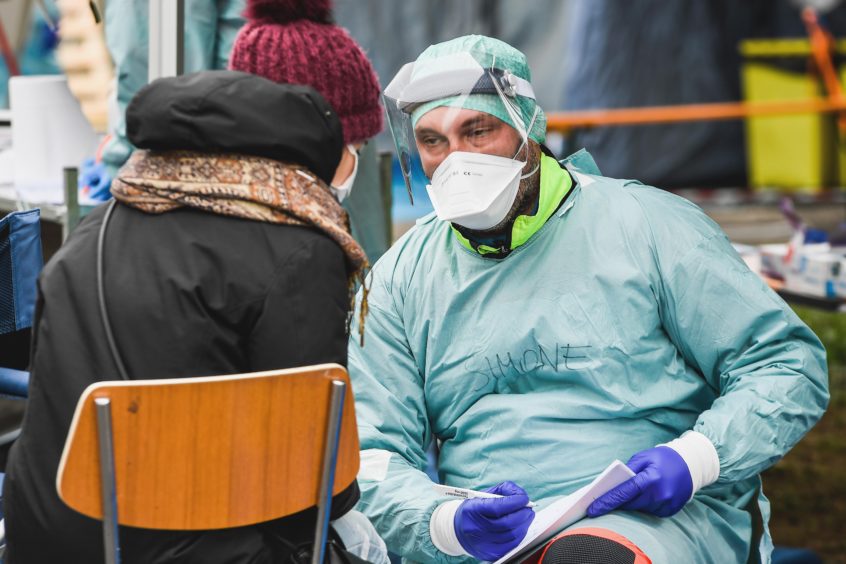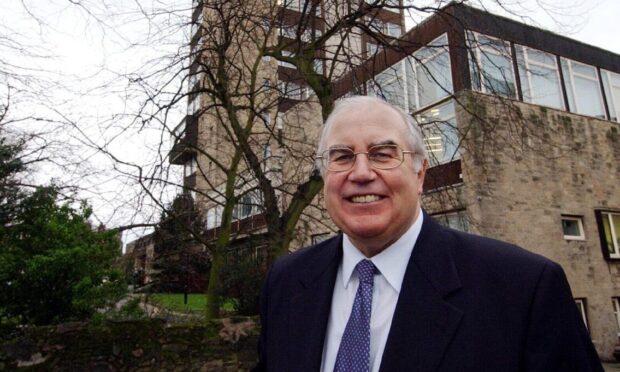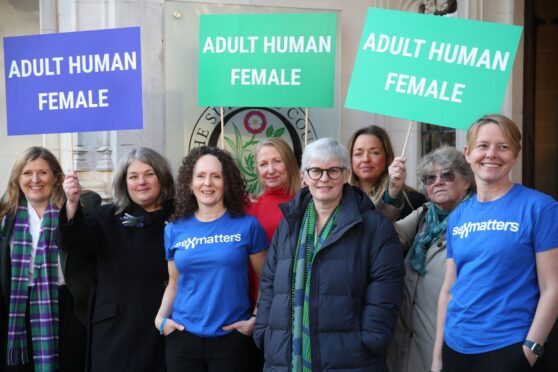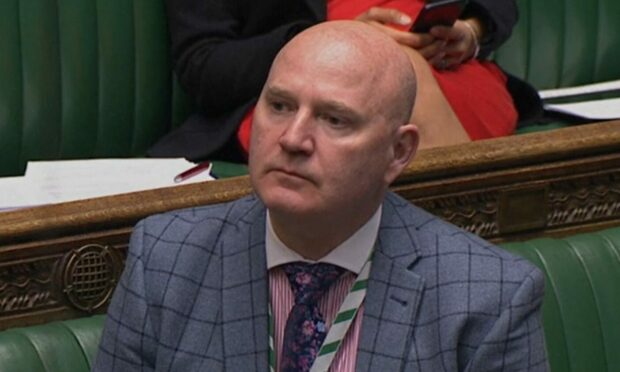A leading microbiologist says he is optimistic that the UK will avoid a coronavirus crisis on the scale of that seen in Italy — but says it remains possible “if we don’t get things right”.
As Italy introduces a full lockdown of the country and the World Health Organisation (WHO) today confirmed the virus is now classed as a pandemic, we spoke to Professor Hugh Pennington, a leading microbiologist based in Aberdeen, to find out what could be in store for the UK.
The academic previously said the scale of the virus’ spread across Europe would depend on whether the situation in Italy was brought under control.
Prof Pennington said there is a “lot of pressure” coming from cases in Italy, but stressed that early testing in the UK is helping contain the virus.
He said: “The bad news is the number of cases in Italy is sort of soaring and, of course, they’ve been a major source of cases into Scotland.
“The Italians are having a difficulty containing the number of cases. Roughly half the cases in the world are in Italy right now.”
However, the microbiologist welcomed stabilisation in some of the first countries hit by the outbreak, including China, where the virus originated.
He said: “The good news is that the number of cases in other countries like South Korea and Iran seems to be going down in terms of the new cases which is very good news.
“The number of cases in China is now into single figures of new cases.
“That’s good news that the number of cases in China has getting towards the point where they won’t be having any cases at all, probably, at the rate of decline.
“In the UK, it’s about standard, it’s about 40 cases a day or something like that which is not good but on the other hand it’s not outrageously bad. It’s nowhere near the number of cases in Italy or the US.”
‘Pandemic warning’
The World Health Organisation (WHO) today confirmed the virus is now classed as a ‘pandemic’.
In a statement they said the designation was not one to be used “lightly or carelessly”, adding that the move does not change the WHO’s assessment of the threat.
"Describing the situation as a pandemic does not change WHO’s assessment of the threat posed by this #coronavirus. It doesn’t change what WHO is doing, and it doesn’t change what countries should do"-@DrTedros #COVID19
— World Health Organization (WHO) (@WHO) March 11, 2020
Prof Pennington said the use of the word is just a “descriptive term”, based on the fact the virus is on every continent on the planet.
He added: “This is basically just saying it’s a worldwide virus. They have been pushed towards it by the facts. It’s spreading person to person. I don’t think they had any choice but to say it was a pandemic.”
While the term can be a loaded one that does create fear, Prof Pennington argues, the virus can still be controlled, as backed up by the WHO in their statement.
The public should continue to follow government advice and public health warnings such as washing hands regularly, rather than change their day to day lives at this stage, the academic claims.
Should the UK heed the warning of Italian doctors?
Italian doctors have warned medics across Europe to “get ready” for coronavirus in a letter revealing up to 10% of all those infected with the virus need intensive care, with hospitals becoming overwhelmed.
1/ I may be repeating myself, but I want to fight this sense of security that I see outside of the epicenters, as if nothing was going to happen "here". The media in Europe are reassuring, politicians are reassuring, while there's little to be reassured of. #COVID19 #coronavirus
— Silvia Stringhini (@silviast9) March 9, 2020
Prof Pennington said the country, which has the second highest population of elderly people in the world behind Japan, has had a “very hard time”, in part due to the number of elderly people and in the time it took to identify cases of the virus.
He said: “They’ve had a very hard time in Italy. I think because they were very slow in spotting that they had the virus and by the time they spotted it, it had already got a grip in several towns and was spreading from person to person.
“There’s a lot of old people in Italy so they’re having great difficulty reducing the number of cases which started to happen in China at the end of January so they’re two months behind what happened in China.
“Whether we will get to the Italian situation, we can’t say really. I don’t want to give any predictions that turn out to be wrong but so far we’re still in containment mode.”
Whether we will get to the Italian situation, we can’t say really.”
Sustained community transmission, cases unrelated to either contact or travel, would be the point at which the “siren sounds”, Prof Pennington believes.
It comes as the Scottish Government today confirmed the first case to have been transmitted in the community, out of a total of 36 across the country.
Prof Pennington said: “We haven’t had a community outbreak in the sense of lots of cases in a particular place.
“That’s when the sirens sounds because then you have to put in all these very stringent measures to stop people travelling, to stop people going to the pub, going to football matches, close the churches, schools and cinemas.
“We’re nowhere near there in the sense we don’t have evidence of sustained community transmission and let’s hope we manage to stay like that.”
‘Increased testing’
The decision to ramp up testing capacity across the UK has been welcomed by the leading scientist from a “biological point of view”.
He said: “That means we know what’s coming. I don’t think the Italians did it and by the time they did it was everywhere in the north.
“We don’t want to get in that position and this testing announcement means that we’re going to be doing it and means we have the facility to do it.
“I think we’re doing the right thing in increasing the number of tests substantially, making sure we know exactly what’s going on and reacting to the knowledge we get from the test results.”
Prof Pennington maintains that while there is no need to panic in the UK, nor can there be complacency.
But we’re better placed to cope with it seemingly than the Italians because we tested very early.”
He said: “There is no complacency because it kills the elderly but there no panic because we’re nowhere near the Italian situation. We hope we don’t get there but we have to look at it and say if we don’t get things right we might get put in that position.
“We shouldn’t be too pessimistic. The main thing the public should do is watch what’s happening then advice comes out from the health departments, follow that advice, and keep on washing your hands, which you should be doing anyway.
“I’ve got this slightly guarded optimism. Guarded in the sense it’s a new bug and it might take us by surprise again like it did with the Chinese and the Italians.
“But we’re better placed to cope with it seemingly than the Italians because we tested very early.”
Should Britain ramp up measures to contain the virus?
It was revealed yesterday that Britons with even “minor” cold, flu or fever symptoms could soon be asked to stay at home in self-isolation in a bid to tackle the outbreak of the virus.
England’s chief medical officer Professor Chris Whitty pointed to tighter measures aimed at protecting the public, particularly the vulnerable and elderly, which could be implemented in the next 10 to 14 days.
Prof Pennington said it was “probably not” a realistic proposal but said it was advice “worth taking”.
He said: “If that’s the advice then it’s worth taking because they’re worried that there might be a virus under the radar causing cold-like symptoms and if you stay at home then you’re not going to effect anyone.
“We’ll see how it goes and how the number of cases develops in the UK.”
It would be too soon to introduce a country-wide lockdown, as seen in Italy, at this stage, Prof Pennington said.
He added: “We’re nowhere near the Italian situation in the number of cases or in terms of the numbers of cases that really seem to have risen out of control.
“We’re nowhere near that yet. We’re planning for it but there is no need to implement those plans now.”
